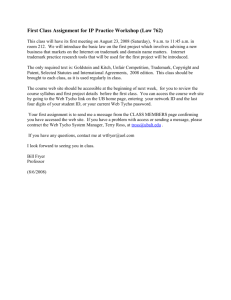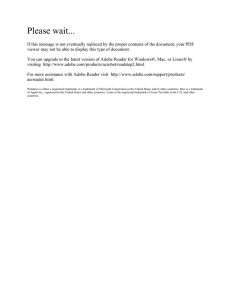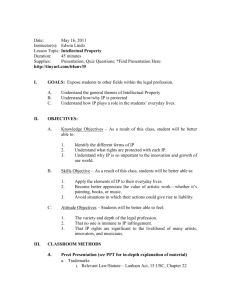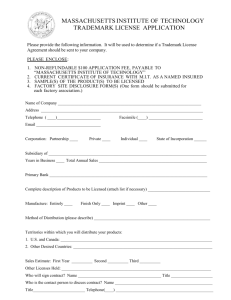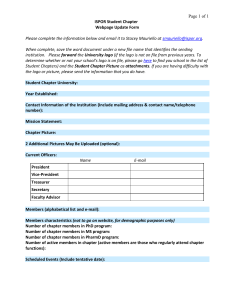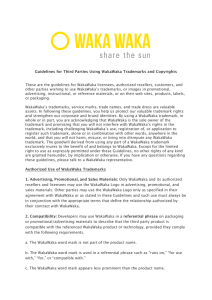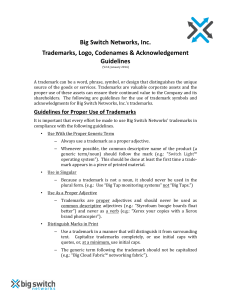Corporate Identity and Visual Systems
advertisement
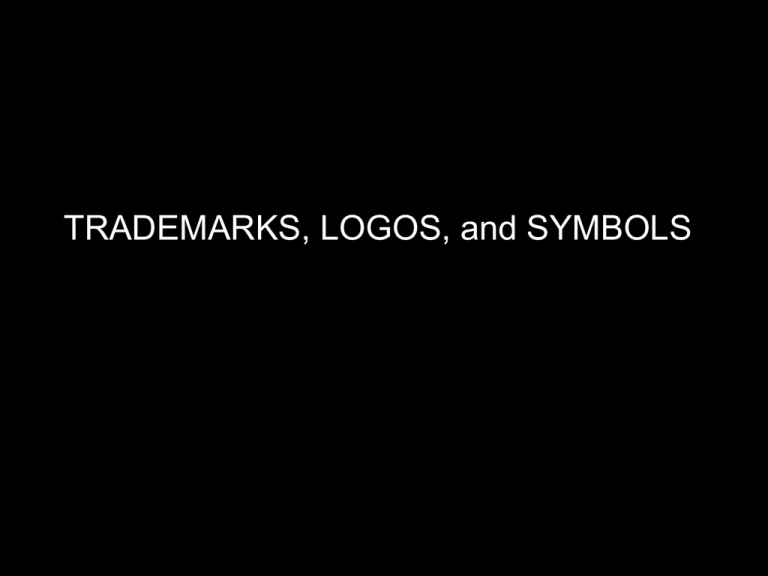
TRADEMARKS, LOGOS, and SYMBOLS After World War II… “Good design is good business.” William Golden CBS CBS logo, first appearance - 1951 Art Director for The Columbia Broadcasting System Designed one of the most successful trademarks of the twentieth century The New Haven Railroad design program Herbert Matter New York, New Haven, and Hartford Railroad trademark, 1954 Mathematical Harmony of parts demonstrates how alphabetic forms can be unified into a unique harmony. IBM Paul Rand International Business Machine 1956 Developed from a typeface called City Medium. Redesigned in 1970 to unify the three forms and hint at scan lines on video terminals. Westinghouse Trademark, 1960 The nature of the company’s business, is incorporated in this logo that is simple, memorable, and distinct This design, made to look like electronic diagrams and circuitry(wires, plugs,molecular structures), is shown here as it might be constructed in an animation. Paul Rand American Broadcasting Company trademark, 1965 Next trademark, 1986 A four letter name is divided into two rows to give a common name an uncommon appearance. The black box signifies the black box of the NEXT Lester Beal International Paper Company trademark, 1960 Stenciling the mark on the tree is one of numerous applications that must be considered Cylinder forms and a thematic repetition of circular bands brings design order to a type of retail outlet that are usually noted for visual Chermayeff & Geismar Associates Mobil Oil trademark, 1964 Mobil pollution and clutter. Chermayeff & Geismar Associates Top Row: The American Film Institute, 1964 Time Warner, 1990 The American Revolution Bicentennial, 1971 Screen Gems, 1966 Bottom Row: Burlington Industries, 1965 National Broadcasting Company, 1986 Rockefeller Center, 1985 The National Aquarium in Baltimore, 1979 Saul Bass & Associates Top Row: AT&T (Bell), 1969 AT&T (Globe), 1984 Celanese, 1965 Continental Airlines, 1965 Girl Scouts, 1978 Bottom Row: Minolta, 1980 United Airlines, 197 United Way, 1972 Warner Communications, 1974 YWCA, 1988 Transportation Signage & Symbols In 1974, the United States Department of Transportation commissioned the American Institute of Graphic Arts (AIGA), the nation’s oldest professional graphic design organization, to create a master set of thirty-four passenger-and pedestrian-oriented symbols for use in transportation related facilities. Design Systems for the Olympic games Adopted the use of repeated multiple lines as well as bright colors based on studies of ancient Aztec artifacts and Mexican folk art. Lance Wyman Nineteenth Olympiad Mexico City, 1968 Otl Aicher Grid system for pictographs Twentieth Olympiad, Munich, Germany 1972 RECENT TRADEMARKS ` Logo Project Create a Logo for yourself -Done in Illustrator -Black and White -Two versions - 1 = symbol, 2 = symbol and your name Create at least 3 thumbnails in your sketchbook - Daily grade Create four sub-logo symbols -Done in Illustrator -Black and white -Three symbols will represent something significant about you. -One symbol will represent Computer Art. -Symbols should have common elements or characteristics, and may relate to your first logo



